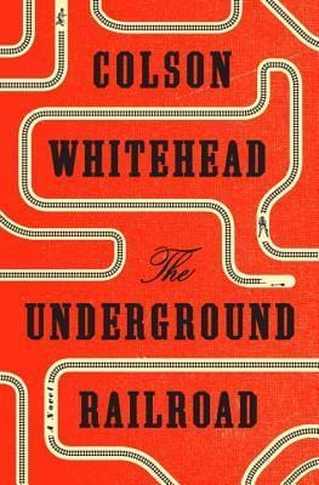 Wow. I just completed Colson Whitehead’s The Underground Railroad, and I am completely undone. Blown away. My heart feels wrung and exposed, full of sadness and grief and also hope. Let me start at the beginning. If you follow me on Facebook, you might know that I was only two books away from meeting my Goodreads goal of reading 100 books in 2016. The Underground Railroad was #99, and it was magnificent. My best read of 2016. I say this with complete confidence, even knowing that I will read at least one more book before the year closes. The Underground Railroad was the recipient of the National Book Award, so I was expecting greatness. But I wasn’t expecting to experience nearly a full range of the sadder, weightier human emotions: devastation, horror, heartsickness, anger, and disgust, among others. Cora, the protagonist, is a slave on the Randall plantation in Georgia. Caesar, a fellow slave, approaches her about escaping the plantation, and after an altercation with her new “owner,” Cora agrees to the plan. What follows is Cora’s travels through the Underground Railroad, a literal railroad running underneath southern states. For Cora, and many of the other former slaves in the book, escaping the plantations where they were imprisoned does not equal freedom. Yes, Cora is free of the immediate threat that her former “owner,” Terrance Randall, presents, but she learns that other people, white and black, want to have control over her body. But Cora is strong and resilient, and she has agency. She is relentless and she is powerful. And the people who help Cora along the way, black and white, show goodness, beauty, and agency of their own. I read this book feverishly, racing through the pages because even though it’s a gorgeous read (in the sense that Whitehead has a gorgeous mastery of language), it’s also a page-turner. I was nervous about the ending, but I did not have to be. It was perfect. We need books like this to remind us, to make us see. Books like The Underground Railroad rip open those cushy narratives some people like to tell themselves at various times, about how slavery could not have been as bad as some people said because x slave was devoted to x master, even after the Emancipation Proclamation. Or the narratives that Gone with the Wind and Robert E. Lee are authentic representatives of a genteel south that was different from the south where African-Americans were forcibly subjugated, oppressed, mutilated, raped, and/or murdered and their families were torn apart. [In the interest of honesty, I should say that in my adolescence and perhaps going into early adulthood, I, too, romanticized Gone with the Wind and Lee and enjoyed them without critically confronting the legal, social, political, and economic oppressive systems that the characters/figures were part of.] Or the cushy narrative that the Civil War was fought over states’ rights, not slavery (which is sometimes propagated even in our textbooks). Or the narrative that racism ended with the Emancipation Proclamation or the 13th Amendment or the Civil Rights Act or Obama’s presidential terms. This is the time to re-visit what we’re contributing to the world and to interrogate what our values are. I’ve thought about this before reading Whitehead’s book (chiefly thanks to the year 2016, a painful, but hopefully revelatory year), but this book made me confront my own thoughts and actions anew. In the interest of honesty again, I’m deeply, truly sorry for the times in which I thought to myself or even said aloud that I didn’t think that x event or action was racist or doubted racism’s hold in the place that I lived. I don’t get to decide that. I’m sorry for those times when I spoke out of white privilege. I’ve been trying to be better for a while now, and I’ll keep trying. I am grateful to Colson Whitehead for this book. Please read it.
0 Comments
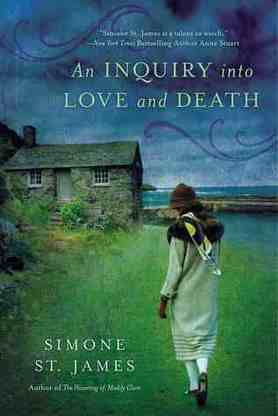 Simone St. James I am what we call in American parlance a “scaredy cat.” I still watch scary movies through a crack in my fingers. When the music starts speeding up and I’m positive that at any moment a ghost-hand is going to dart out from underneath a bed (thank you, The Sixth Sense, for ruining my life), I turn the sound down to half the normal volume so that I won’t be quite as frightened. All of this is to say that I’m surprised that I love gothic stories. And gothic stories, particularly those with romance in them, are my jam/my happy place. Simone St. James had been on my “to read” list for a couple of years and 2016 was the year that I finally made it through her catalog: The Haunting of Maddy Clare (2012), An Inquiry into Love and Death (2013), Silence for the Dead (2014), The Other Side of Midnight (2015), and Lost Among the Living (2016). Paranormal romances set in England between the world wars, St. James’ novels are atmospheric, suspenseful, and tender, and I devour them like they’re Chocolate Chunk cookies from Costco. (That means that I read them very, very quickly). In each book St. James’ main character is an intrepid woman who engages with some element of the occult. Whether the woman is battling a ghost or trying to solve a murder, the stakes are high. And on the romantic front, the main female character in each book finds herself falling in love with a deliciously attractive man. Yes, all of this is highly realistic—and I’m not being sarcastic. So if you like your frights to be balanced with a healthy dollop of sensuality (more sweet than explicit), try Simone St. James’ books. They offer a delightful, satisfying escape. Perfect If You: Want to be scared but not too scared; love gothic romances and you’ve read Rebecca a million times already Not Recommended If You: Are a highly skeptical person who is unwilling to believe that a person might be able to end a haunting + fall in love with a human simultaneously. Check Out: If you like St. James’ books, try another great book I read in 2016, This House is Haunted, by John Boyne. I also have a MAJOR literary crush on Kate Morton, who has published numerous books in this same vein. While I didn’t read any of her books this year, I recommend her HIGHLY. (I contemplated using “bigly” instead of “highly,” but as far as I’m concerned it’s too soon for those kinds of Trump jokes.) I will make fun of myself a lot in this book, but understand I feel good, healthy, strong, and fuckable. I'm not the hottest chick in the room. I would be like the third-hottest bartender at a Dave & Buster's in Cincinnati." 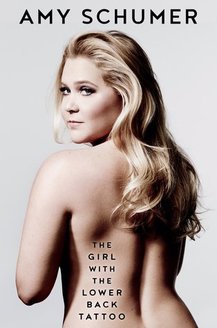 The Girl with the Lower Back Tattoo by Amy Schumer I chose to read most of Amy Schumer’s The Girl with the Lower Back Tattoo while travelling to and from Cape Cod on a wonderful visit with my best friends. Since I was travelling alone I can’t be positive of this, but I have the feeling that I had a smile on my face, occasionally interrupted by a more pensive expression, nearly the entire time that I read this exceptional book. I’m sure that these facial expressions, (in addition to my bulky black laptop bag, which Mary Catherine assured me was not cute), went a long way toward convincing those sitting near me that I was a well-meaning but awkward stranger, which is, in fact, what I was. A series of essays, lists, journal entries, and meditations on Amy Schumer’s life, The Girl with the Lower Back Tattoo is very frequently LOL-funny, often inspirational and insightful, and by turns sad or sentimental, without becoming cloying. Schumer covers a gamut of topics, ranging from her family life (her relationships with her parents and siblings, her dad’s battle with MS), to her sexual and romantic experiences, to her drive to be a stand-up comic, to what she would want people to say and do at her funeral. These are some of the things I love about her book: Schumer is unapologetic about what she believes in, like common-sense gun reform. Second, she’s absolutely clear that while she is able to laugh at herself and the things that she has done, this self-deprecating humor is not an indication of low self-esteem. And third, she shows compassion toward the younger girl she was, the woman she is, and the woman she will be. A recurring theme in her book is that it's possible to learn from mistakes and appreciate that that growth and evolution help make us who we are; beautiful, complex humans. This was a huge lesson for me, someone who still internally cringes when I remember awkward/insensitive/arrogant things that I’ve said and done. Schumer even includes old journal entries (with 2016 annotations) in her book; can you imagine putting yourself out there like that? While I am aware that any kind of creative project—autobiographical or otherwise—allows the author to control in some way how they are perceived (by what they tell or don’t tell, how they tell it, what they focus on and omit, etc.), this is how I, as the reader, walked away feeling: that I knew Amy Schumer better and that I could relate to her. This was a hilarious, moving read. Perfect If You: Love Amy Schumer, comedy, memoir, coming of age stories, dirty humor; want to celebrate being human Not Recommended If You: Would rather not read intimate details about Schumer’s life (but if you have watched her show or stand-up, you probably won’t be surprised by some of the things that she includes) Check Out: Last week’s recommendation on Jessi Klein’s You’ll Grow Out of This; Amy Schumer’s show Inside Amy Schumer; any of the essays written by Klein, Tina Fey, Amy Poehler, and Mindy Kaling. 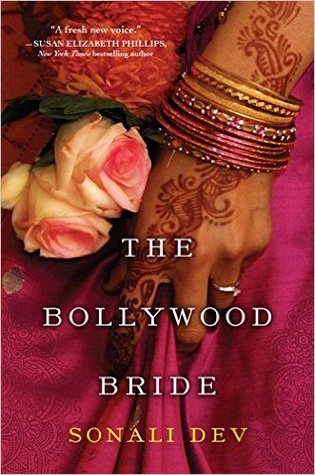 *I’ve read 95 novels in 2016 so far. This is part of a series on my favorites. The Bollywood Bride by Sonali Dev Romance novels which focus on a couple reuniting—novels referred to as “Second Chance” in romance writing/reading parlance—have never been my favorite. I think that I have always wanted to believe so firmly in the “happily ever after” that I hate to think of couples who belong together separating for any length of time and then having to deal with all of the deep heartache before reconciling. Yes, I know, it’s a rich theme and sometimes people who are wonderfully suited for one another don’t work out because of timing, etc., etc., but the fact remains that the “Second Chance” plot usually isn’t my first (or even second) choice. All of this is to say: Sonali Dev’s The Bollywood Bride uses this premise—two lovers who separated under intense circumstances, coming together again—and it was sexy, explosive magic. Ria Parkar is a famous Bollywood actress with the moniker “Ice Princess” whose beloved cousin Nikhil invites her to Chicago for his upcoming wedding. Ria wants to celebrate with her family and friends, but she also can’t fathom reuniting with Viky, her former lover whose heart she broke roughly ten years earlier. I’m of the opinion that I fell hard for the “Second Chance” angle in this story because it’s clear that Viky remains furious/heartbroken/devastated/confused about why Ria broke things off, and it’s also clear that their way back to one another is not going to be easy. Dev expertly establishes the emotional and sexual tension between Ria and Viky throughout this novel. When they finally re-consummated their relationship the sense of relief and happiness that I felt revealed to me how much I had been invested in that tension. But as is often the case in romance novels (and real life), physical intimacy doesn’t magically dissolve the huge problems that Ria and Viky confront. Will Ria be able to overcome her fears, particularly those related to her mother and father, or will she leave Viky for a second time? I knew that because this is a romance novel, I was guaranteed a HEA (Happily Ever After), but, due to Dev’s masterful plotting and characterization, I still nervously doubted whether it was going to happen. That isn’t a feeling that I frequently experience to this degree when reading the romance genre, and it made my reading of the The Bollywood Bride more exciting and dramatic. The Bollywood Bride offers an incredible story with sensitively developed conflict, sizzling emotional and physical romance, and characters whose happiness I genuinely rooted for. Perfect If You: Want a HEA to hope for; would like to broaden your reading in the romance genre (Dev’s book is set in Mumbai and Chicago and it’s rooted in Indian culture) Not Recommended If You: Have a heart of stone; shy away from hot romance reads Check Out: Since I loved this book I’m going to check out Dev’s other books: A Bollywood Affair and A Change of Heart. A Bollywood Bride first came to my attention through NPR’s 2015 Book Concierge site—a fabulous resource if you’re ever in the mood to select from some of the year’s best reads. 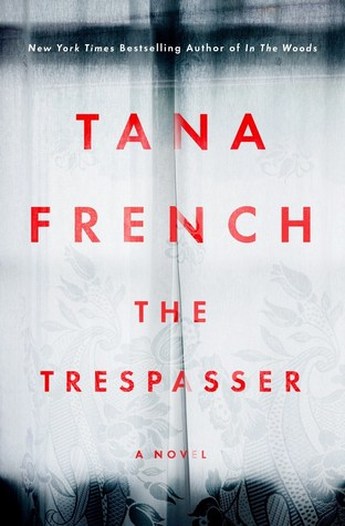 Image From: https://www.goodreads.com/book/photo/29430013-the-trespasser Image From: https://www.goodreads.com/book/photo/29430013-the-trespasser I’ve read 93 books in 2016 so far. This post is part of a series on my favorites. The Trespasser by Tana French Part of the Dublin Murder Squad Series I look forward to Tana French’s books in a big way. French is a dazzling thriller/mystery writer, one of the best writing in the genre. If you’ve exhausted Gillian Flynn and Paula Hawkins’s catalogs—among other popular thriller/mystery writers—give French a try. I can’t remember how I stumbled across French’s first book In the Woods (2012), but I've loved each of the five which followed in her Dublin Murder Squad series. A different detective of the Murder Squad narrates each of French’s books, and French is a master at giving each of them a totally unique voice and their own strengths and foibles. The Trespasser (2016) is probably my favorite of French’s novels. It starts with the seemingly cut-and-dry death of a woman who has suffered a head injury but what follows is an intense psychological thrill-ride that is completely absorbing. Perhaps what I love best about French’s mystery plots is that unlike some thriller/mystery writers, her killers do not come out of nowhere. With French, the suspects are typically presented toward the beginning of the book and then the net narrows until the killer is revealed; the most fascinating (and most terrifying) part, though, is that along the way French shows us that many of the characters might have had motivation to commit the crime. She plays with the reader’s expectations and suggests how complicated humans really are. In a similar way, though her narrators use the first-person pronoun and we have immediate access to what they see and think, we come to understand that we don’t--and can't-- know all of the respective narrator, not really. Perfect If You: Want to get lost in a brilliant whodunit; like to guess that five different people are the killer before being presented with the truth (or maybe that’s just me; I would not make a good detective.) Not Recommended If You: Are looking for a fast, quick thriller/mystery read; Hate feeling anxious (it’s just my default setting so I can handle it). Hey! Over Here!: If you like Tana French or just the thriller/mystery genre, check out these other picks too: the book Before I Go To Sleep by S. J. Watson (terrifying!); the Cormoran Strike books by Robert Galbraith aka J. K. Rowling (soon to be a HBO series, btw); the first few seasons of the television show Damages starring Rose Byrne and Glenn Close. Damages focuses on attorneys, corruption, and murder—instead of detectives and their cases—but every season begins with a provocative scene (i.e. someone covered in blood) and every episode which follows works backwards to show how the characters got there. 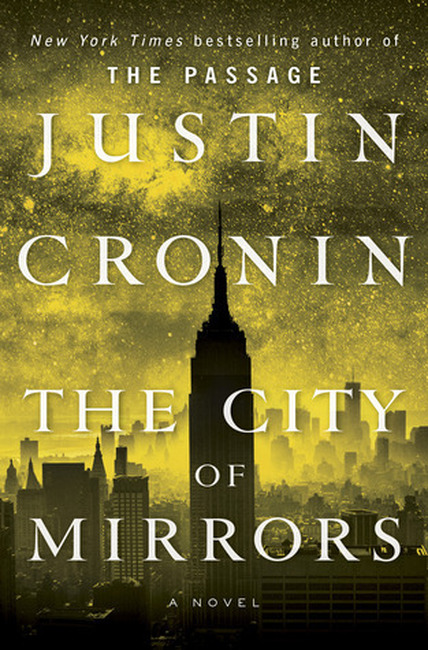 Image From: https://www.goodreads.com/book/photo/26891429-the-city-of-mirrors Image From: https://www.goodreads.com/book/photo/26891429-the-city-of-mirrors I’ve read 93 books in 2016 so far. This post is part of a series on my favorites. The Passage Trilogy by Justin Cronin This amazing trilogy starts with the somewhat overdone premise of a vampire catastrophe, but if you are allergic to any stories involving vampires, or object to vampire lit. as a matter of principle, don’t write this trilogy off just yet. This series made me feel all the feelings, as Jane Austen once wrote. The books are terrifying, electrifying, and action-packed, and yet the characters, both human and vampire, and their various motivations, their desperate fights for survival, and their ties to their communities, are the real stand-out here. And perhaps the best part of all is that Cronin is a really, really good writer. If you haven’t picked these up yet, enjoy digging into three GIGANTIC books, including The Passage (2010), The Twelve (2012), and The City of Mirrors (2016), the latter of which I read and loved this year. Perfect If You: Want to be a thoughtful-and-reflective-kind-of-scared; enjoy The Walking Dead; are searching for meaty books to get lost in (these are all really long) Not Recommended If You: Want to read another angst-ridden love-triangle vampire book; are already scared that the apocalypse is nigh because Donald Trump was elected Have you read The Passage trilogy? What did you think?
|
About me.Give me that HEA, please.
Join my mailing list.Want to receive a weekly email with links to my latest blog posts? Sign up below!
Archives
April 2024
Categories
All
|
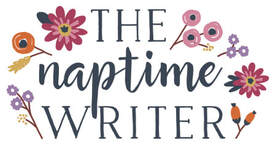
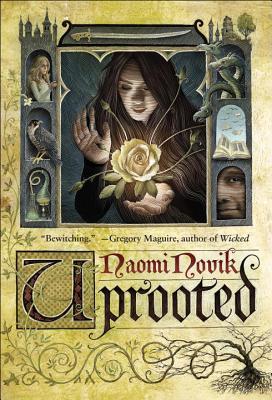
 RSS Feed
RSS Feed
